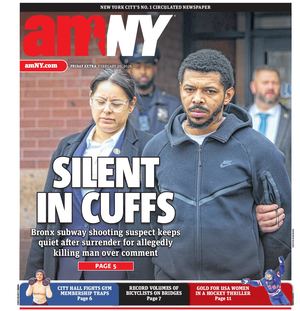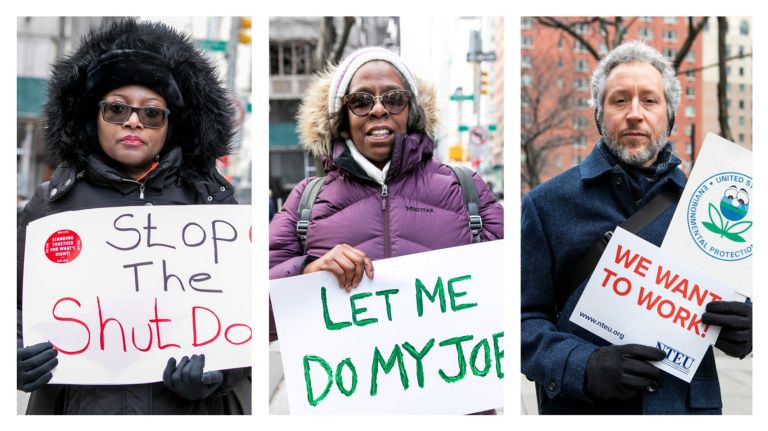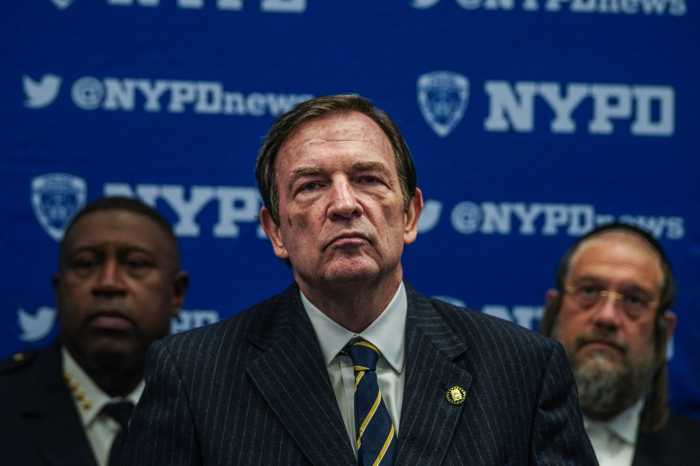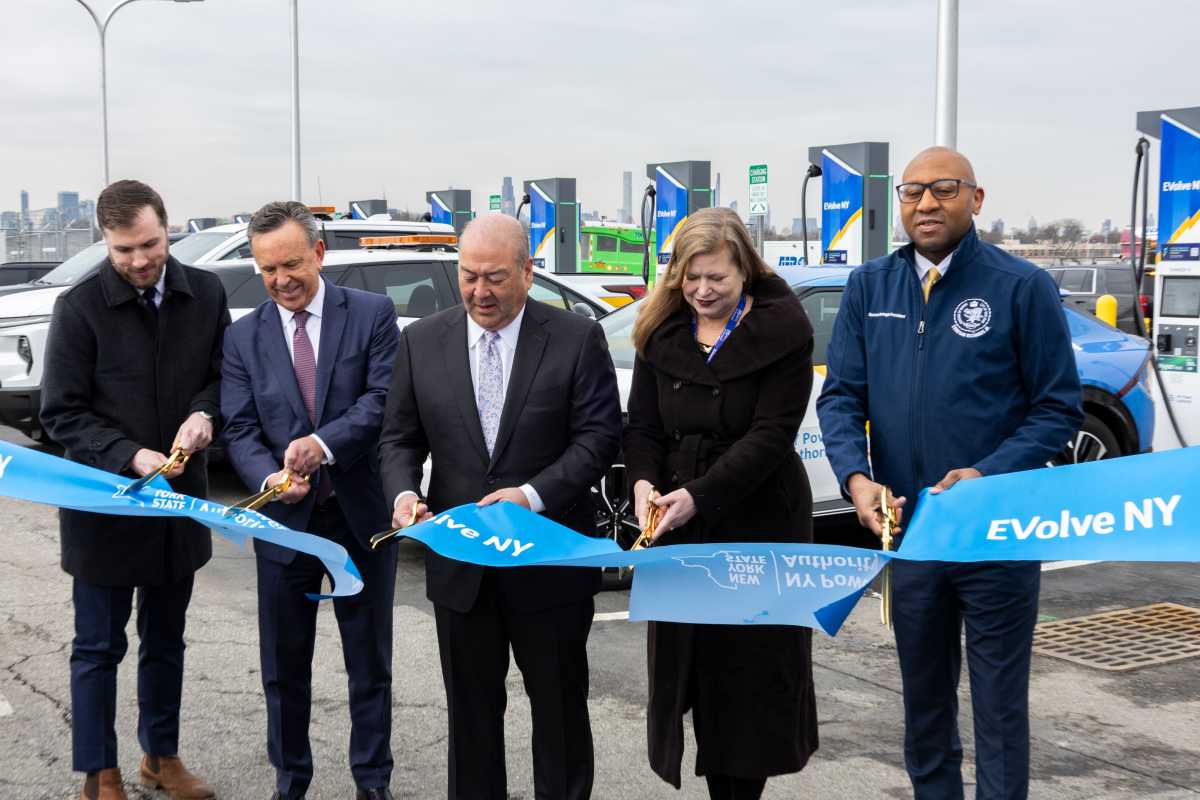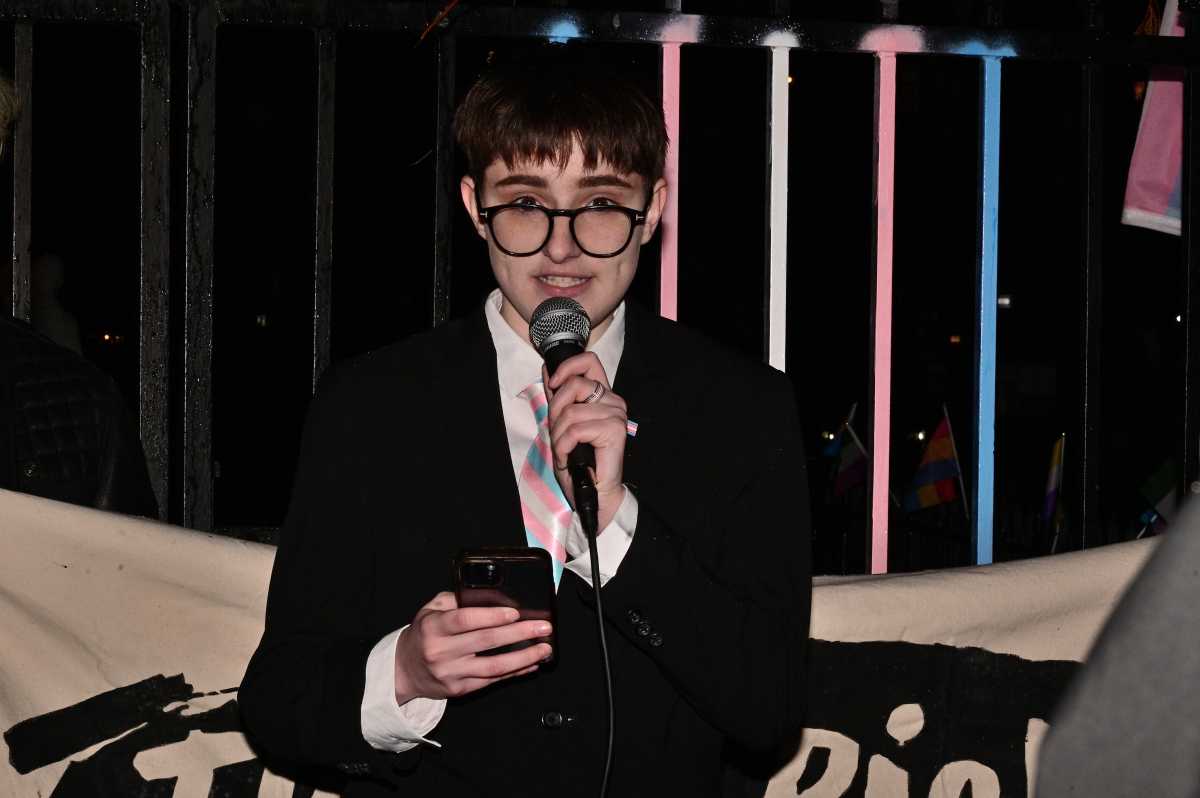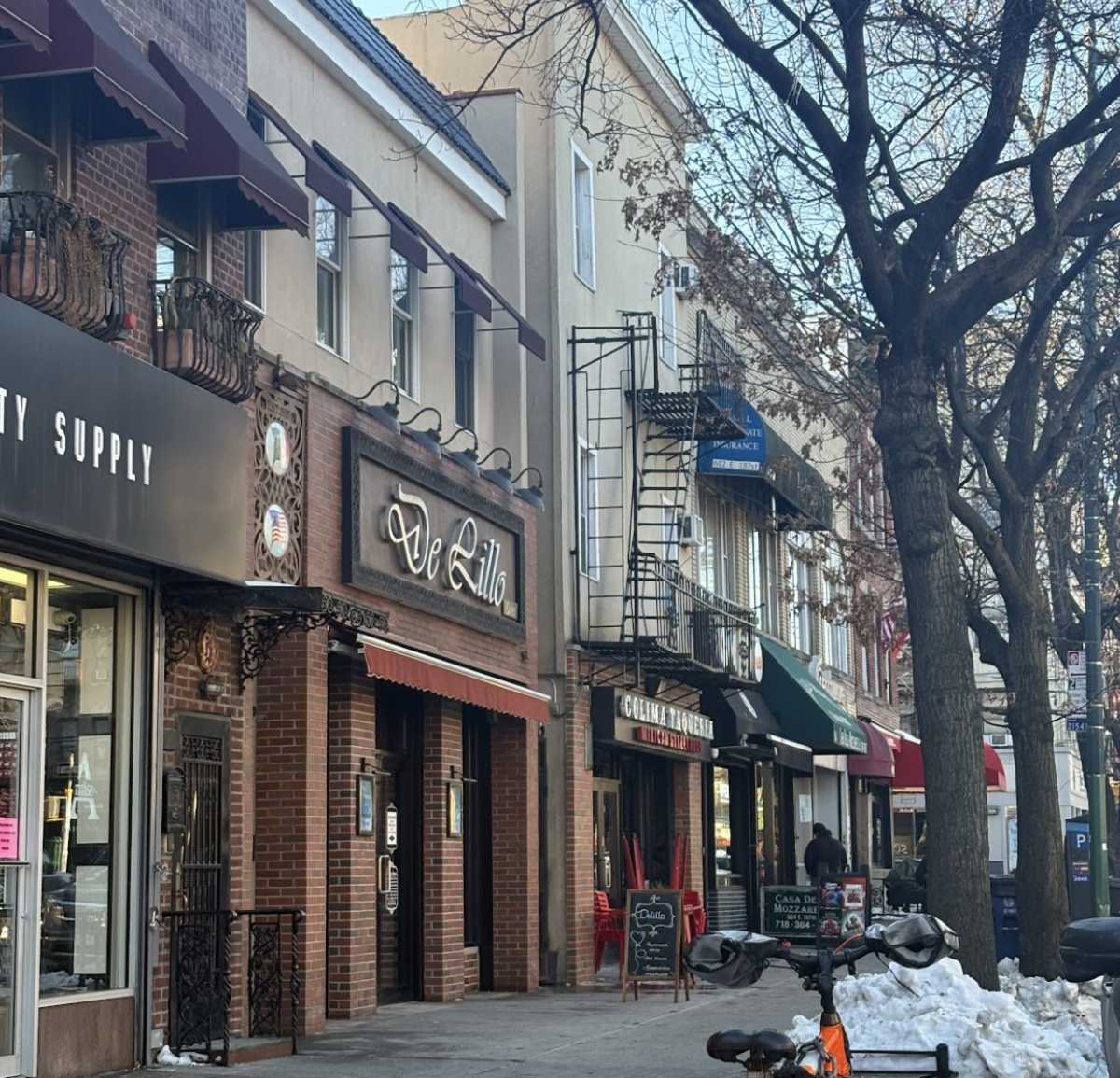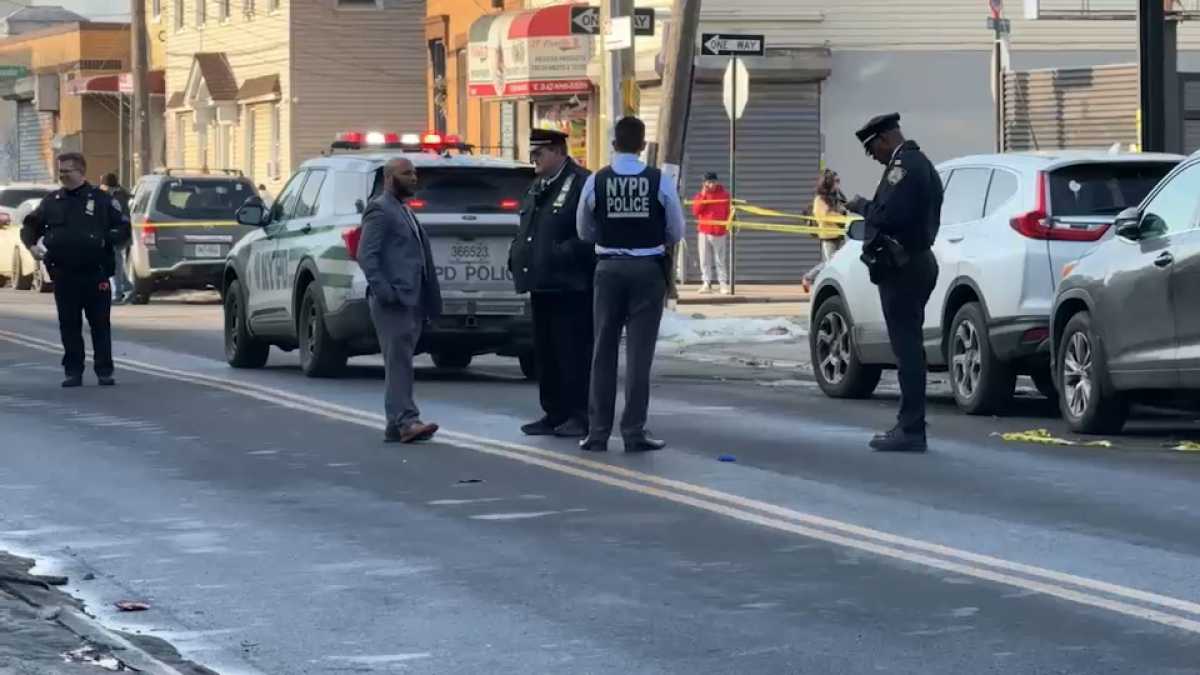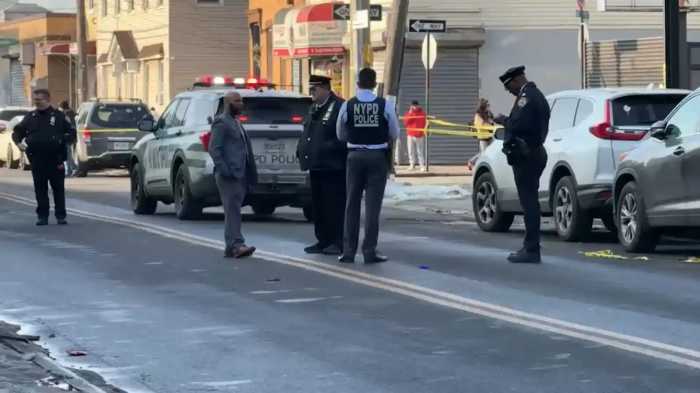
With prevailing uncertainty and no end in sight to the historic government shutdown, federal employees living and working in the city are at a loss.
More than 50,000 federal workers and contractors in the metropolitan area haven’t received a paycheck in weeks as the dispute between Democrats and President Donald Trump over $5.7 billion in funding for the president’s proposed border wall is still far from resolved.
“I think the word that comes to mind is stressful. It’s extremely stressful,” said Victor Ellis, 55, who has worked at the IRS for 30 years and also works as a union representative for the Manhattan chapter of the National Treasury Employees Union. “A lot of people have already filed for unemployment. I’m getting ready to do it myself . . . We don’t really quite understand why we’re not at work. We’ve been used as sort of a bargaining chip for something that’s happened politically but that doesn’t have anything to do with us.”
Ellis is among the countless workers who say they are frustrated and uncertain of their future, with many trying to figure out how they will pay next month’s bills.
These are their stories:
Ebbe Manczuk, 44, has worked for U.S. Customs and Border Protection for 23 years, and said taking care of her 9-month-old daughter is getting harder and harder.
“It’s been stressful to say the least,” she said, adding: “You’ve got to pay for day care. I still have to take transportation to go places with her, to doctors’ visits, I’ve got to pay copays for her doctors’ visits, all those things. I still have to buy formula, I still have to buy diapers, I still have to buy wipes, all those things.”
Her husband’s paycheck is not enough to cover expenses, and they are being forced to dip into savings for things like gas and insurance.
“This is 2019. When was the last time a regular family could live on one paycheck?” she said. “It’s impossible . . . if this extends into February and March and April — and Mr. Trump has said he’s going to go as long it takes them — we are not sure what we’re going to do.”
Manczuk, who lives in Kingsbridge, said she started collecting the names of places that give out free food — “there’s no shame in my game” — but prefers to wait until she absolutely needs it so she doesn’t take services away from people “who are more in need than I am.”
Ultimately, Manczuk wants Republicans and Democrats to come together and find a compromise.
“I’ve been under other administrations and have had to undergo furlough situations before, but under those situations or under those leaderships, I had a pretty good idea when it would end. Not with this,” she said. “With this, it’s just been one endless loop of the same conversation with nothing happening.”
Edward Guster, 47, had grown accustomed to his long commute from Pennsylvania to lower Manhattan every day. Now, people tell him it’s like he’s on vacation — only he doesn’t see it that way.
“If I was on vacation I would be relaxing, I wouldn’t be in New York,” he said. “I’m not on vacation. I want to put that out of everybody’s head, (that) I’m enjoying this.”
Guster hasn’t worked since Dec. 29. And while he was able to pay some of his January bills with savings, he is now calling his bank to ask for an extension of his February mortgage payment.
“I had to call my mom and dad and ask them if I could borrow some money because I don’t want them to come repossess my cars,” he said. He added that the biggest impact has been on his 8-year-old son and 14-year-old daughter. “My son has been having a difficult time. He actually went to school last week and was very upset because he thought we were going to lose the house. I had to go to school and meet him for lunch and calm him down. It was difficult.”
Guster, who has been working for the EPA for 20 years, said he had to call his children’s dance school and ask for leniency in making those payments.
“It’s tough on the family,” he said. “My wife is trying to pick up some extra hours so she can make up some of the difference . . . it’s just not going to work next month.”
Keith Polite, 55, has worked as a security officer at the Smithsonian’s lower Manhattan museum for four years. He’s been out of work since the museum closed its doors on Jan. 1. As a subcontractor, there won’t be any back pay for him when the government eventually reopens.
“Everyone is using that word, furlough, to try to minimize that pain as much as they can. But no one is talking about us, [those who aren’t] getting any money at all,” said Polite, who lives in Williamsburg. “If this shutdown drags on . . . and I’m past due, is Con Ed going to turn off my lights?”
Polite said he has five vacation days and four sick days, but if he uses them up, he has nothing for the rest of the year.
“Or do I go into my 401(k) and get penalized to try to pay bills? Or do I go into my savings?” he asked. “That’s all the frustration that we are dealing with because we’re not furloughed, because we don’t have money coming down the pipe once this shutdown is over.”
Polite said he was glued to the television for Trump’s Oval Office address earlier this month, but he didn’t see anything that gave him hope there was a quick end in sight.
“This is Trump sitting in the White House with his hands folded . . . he has his bravado,” he said. “This is his home run, this is his last hurrah. He can’t cave in and I think that’s wrong. And he’s talking about people need to adjust — how are you going to adjust if you don’t have any money coming in?”
Antoinette Peek-Williams, 62, has been working for the Customs and Border Protection agency for 32 years and is just a few years from retirement. She hasn’t worked since Dec. 22 and is debating dipping into that retirement fund to get through this historic shutdown.
“It’s been a little crazy,” she said. “I’m pretty much now looking to find some other type of means of income — whether it be to pull out from my retirement, whether to find another job, whether it be to take out a loan. Living in Manhattan is pretty expensive.”
The Harlem resident said she rents a two-bedroom apartment for close to $3,000 and is now living only on her husband’s income. She asked her landlord for some help, but said they only agreed to waive the $30 late fee.
“I’m not paycheck to paycheck, but come February it’s going get a little hairy,” she said. “Even today I’m going to go down to the food bank and see what they have to offer as far as getting some staples in the house.
“It just affects everybody that wants to work,” she added. “We’re not out because we don’t want to work. I’ve heard we’re on vacation — a vacation is what you choose to do, you’re paid for it . . . We just want to get back to work and do what we’re supposed to do for the country.”
Peek-Williams said she’s trying to remain hopeful that the government will reopen but she just doesn’t know what will happen.
“I don’t agree with the wall, for sure,” she said. “I would just wish that they would open up the government and then discuss what they have to discuss after that.”
Chris Saporita, 50, said he is one of the luckier ones: He has a bit of savings to get him through this shutdown, but it’s stressful not knowing when it could end. The Fort Greene resident was planning on buying a house in upstate Hunter but decided to hold off until he knows when he will be getting a regular paycheck again.
“It’s mostly just meant that we’re not able to do the work that we want to be doing, protecting the public health and the environment,” said Saporita, who has worked with the agency for 10 years, adding: “This is my life’s work, so I’m here. Administrations are temporary . . . so hopefully we’ll get back to some sanity.”
His plans for the near future are “uncertain now. You can’t buy a house if you don’t have paychecks coming in,” but he hopes that politicians can “get it together, get us back to work.”
